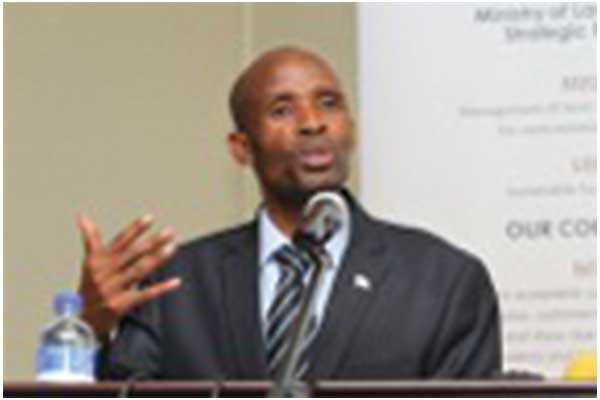Symposium puts spotlight on water sustenance
This past week marked the 17th Water Net/WARFSA/GWP-SA symposium. Addressing stakeholders at the Gaborone International Convention Centre (GICC), the Minister of Land Management, Water and Sanitations Services, Prince Maele said the event has reached Botswana at the right time.
Maele said that both land and water are a source of sustenance and livelihoods adding that the resources are a basis for socio-economic development. “These two natural resources drive the activities that improve the industrial and well being as well as growing the wealth of the country at large,” he said.
Maele further explained that developing strategies for integrated water resources management calls for business people, civil society government and academia to work together. Thus, he congratulated conveners of the symposium, being the water Net, Water Research Fund for Southern Africa (NWRFSA), Global Water Partnership Southern Africa (GWPSA), The University of Botswana International Association of Hydrological Sciences and the Local Organising Committee, saying that their joint efforts towards the initiative is greatly appreciated.
“The symposium could not have come at a better time for Botswana as the country and region faces challenges in availability and sustainable use of fresh water resources,” he added. Deputy Chancellor of The University of Botswana, Prof Martin Mokgwathi also highlighted that the symposium comes at an opportune time when the region is struggling with water-related risks posed by climate extremes.
“Just last week, Gaborone was ravaged by a storm which caused substantial damage to property and infrastructure, while elsewhere in the country the land is scorched and temperatures were around 40 degree Celsius. I hope the research that will be presented in this symposium will be able to inform planning and decision making under uncertainty,” he said.
Mokgwathi said that since the establishment of the Okavango Research Institute (ORI), the Botswana’s sole research institute in 1994, it has played a key research role in the understanding of the dynamics of natural resources management, especially the Okavango delta.





